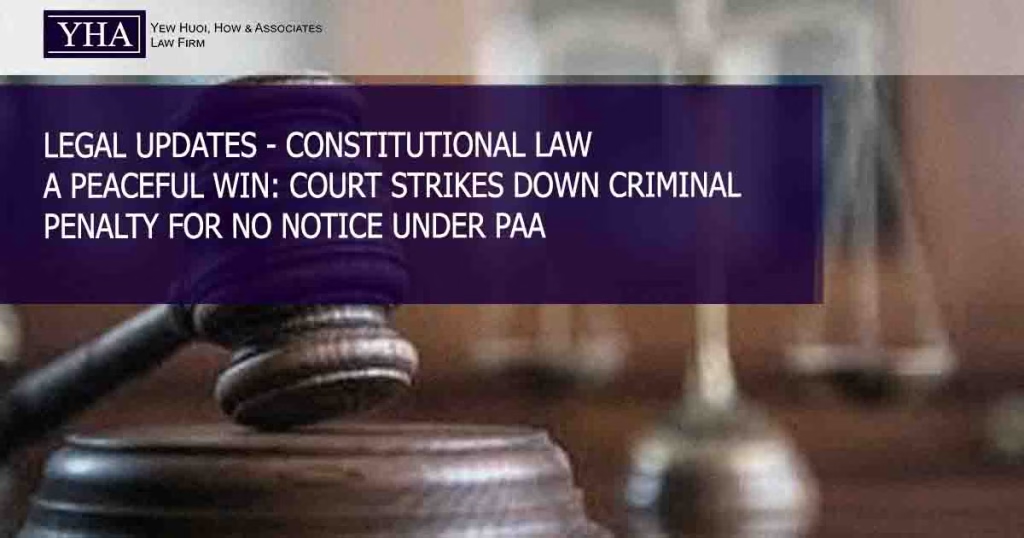1. Summary and Facts
Amir Hariri Abd Hadi v. PP [2025] 4 MLJ 807 concerns a public rally attended by about 60 individuals in the heart of Kuala Lumpur organized by a political public member to protest against a ‘scandal’ involving the government’s award of a contract to a company. Twelve days later, the Applicant was charged under Section 9(5) of the Peaceful Assembly Act 2012 (“PAA 2012”) for not giving five days’ notice in advance to the police district in charge as required by laws even the rally ended peacefully. The Applicant contested the validity of the penal provision by non-compliance with the notice arguing it excessively restricted his constitutional right to peaceful assembly under Article 10(1)(b) of the Federal Constitution.
2. Legal Issues
• Whether Section 9(5) of the PAA 2012 is unconstitutional for being inconsistent with Article 10(2)(b) read with Article 8 of the Federal Constitution.
• Whether criminalising failure to give notice is a proportionate restriction on the right to peaceful assembly.
3. Court’s Findings
• The Federal Court decided that Section 9(5) of the PAA 2012 was unconstitutional for being inconsistent with Article 10(2)(b) read with Article 8(1) of the Federal Constitution.
• The Court struck down Section 9(5) of the PAA 2012 because it was disproportionate and unfair to organiser, had no genuine connection to public safety and functioned as prohibition than a restriction on the right to peaceful assembly.
• The Court upheld the decision in Nik Azmi and overruled Yuneswaran’s decision to declare the section unconstitutional.
4. Practical Implications
This judgment declared Section 9(5) of the PAA 2012 void and unconstitutional, meaning it can no longer be used to penalise organisers for failing to give the required 5-day notice before a rally. The Court held that any law limiting the right to peaceful assembly must be fair, clearly connected to public security, and must not turn a simple procedural requirement into a prohibition on exercising constitutional rights.
Upholding Nik Nazmi and overruling Yuneswaran:
• the Court confirmed that the proportionality test is the most appropriate standard over the reasonable test when determining the legality of restrictions on constitutional rights.
• emphasizing that parliamentary regulations must remain restrictions, not prohibitions, to avoid violating the right to peaceful assembly.
This case is a landmark in Malaysian constitutional law as it establishes that Malaysian courts will consistently apply the proportionality test as a constitutional benchmark when reviewing legislation affecting fundamental liberties, ensuring that such restrictions are equal, non-discriminatory, and genuinely aimed at safeguarding public security.

